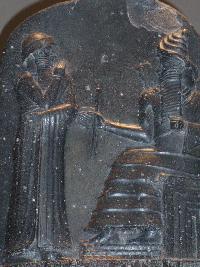when English names (street names) have a meaning Thread poster: Scheherezade Suria Lopez
|
|---|
Hello prozaddicts!
I'm translating a boog and I've come across a problem you've surely found as well. ¿What do you do when words are used to refer to the same language or mean something?
In my particular case, the chapet begins like this:
"Durante tres décadas, la agencia de corredores de bolsa de Goldstein y Stoddard estuvo situada a un paso de la Royal Exchange y el Bank of England, en el núcleo del distrito financiero de Londres, un lugar tan diferent... See more Hello prozaddicts!
I'm translating a boog and I've come across a problem you've surely found as well. ¿What do you do when words are used to refer to the same language or mean something?
In my particular case, the chapet begins like this:
"Durante tres décadas, la agencia de corredores de bolsa de Goldstein y Stoddard estuvo situada a un paso de la Royal Exchange y el Bank of England, en el núcleo del distrito financiero de Londres, un lugar tan diferente de Mayfair como la noche y el día. En este centro financiero, las calles llevaban nombres sugerentes que, en inglés, dejaban entrever su propósito inicial: Cornhill, Threadneedle, Poultry, y el paraíso de los corredores de bolsa, Exchange Alley."
It isn't finished because I don't know how to indicate the Spanish version (between brakets, just beside them..???)
In English was:
"In the city, streets bore sturdy, hardworking names that hinted at their earliest purpose: Cornhill, Threadneedle, Poultry, and the broker's haven, Exchange Alley."
¿What do you usually do when facing these things?
Thank you!!!!!!!
Muchos besos ▲ Collapse
| | | |
Hello,
I translate into English so I don't know if there is a different system for translating out of English, but the general rule is that names - names of individuals, places, institutions, etc. - are NEVER translated. The names of streets in the City of London do have specific meanings as do many other street names and area names but those names are unique and specific to those areas all the same - even if there was a "Threadneedle Street" anywhere else in the UK or the English speaking... See more Hello,
I translate into English so I don't know if there is a different system for translating out of English, but the general rule is that names - names of individuals, places, institutions, etc. - are NEVER translated. The names of streets in the City of London do have specific meanings as do many other street names and area names but those names are unique and specific to those areas all the same - even if there was a "Threadneedle Street" anywhere else in the UK or the English speaking world, it wouldn't have the same connotations as "Threadneedle Street" in London. A couple of ways of dealing with this in translation is to use brackets, e.g. "Threadneedle Street" (information in brackets about where the street got its name from) or footnotes providing the same information - the advantage of footnotes is that they allow for uninterrupted reading but the choice of footnotes or parenthesis is also a cultural one and depends on who you're translating for. Of course, you don't want to give too much information because otherwise you might bore the reader. Leaving the names in English without giving an explanation is also an alternative - let the reader go and do some research of their own! You could even leave a hyperlink for a Spanish-language website at the end to show where the reader can find out more.
Just a few suggestions, but generally I don't think you should translate the names.
Buena suerte, Aisha ▲ Collapse
| | | | | In this particular case, put something in brackets | Jun 12, 2005 |
I agree entirely that generally speaking names are not to be translated.
However, in your particular case, the meaning of the names is the whole point of your sentence, so I think some kind of translation in brackets to explain "thread needle" and "corn hill" & "poultry" would be best, otherwise the reader won't get the same benefit of the sentence (if we assume that one of the purposes of translation is to pass on information) - my Spanish isn't up to much but it seems to me you have al... See more I agree entirely that generally speaking names are not to be translated.
However, in your particular case, the meaning of the names is the whole point of your sentence, so I think some kind of translation in brackets to explain "thread needle" and "corn hill" & "poultry" would be best, otherwise the reader won't get the same benefit of the sentence (if we assume that one of the purposes of translation is to pass on information) - my Spanish isn't up to much but it seems to me you have already more or less done that for Exchange Alley. ▲ Collapse
| | | | Elena Varela 
United Kingdom
Local time: 13:54
English to Spanish
+ ...
| I would also add a brief explanation | Jun 12, 2005 |
I agree with Charlie, I would add an explanation in brackets or at the bottom of the page, as "poultry", "cornhill" etc would not make sense otherwise to the target reader.
Another suggestion...you could just leave "City" as it is in the original, I think it is widely know and you could say "la City". I am telling you this as it was a suggestion from one of my lecturers when I encountered the same problem during a translation, but you can of course use your own choice "centro financiero".<... See more I agree with Charlie, I would add an explanation in brackets or at the bottom of the page, as "poultry", "cornhill" etc would not make sense otherwise to the target reader.
Another suggestion...you could just leave "City" as it is in the original, I think it is widely know and you could say "la City". I am telling you this as it was a suggestion from one of my lecturers when I encountered the same problem during a translation, but you can of course use your own choice "centro financiero".
Good luck! ▲ Collapse
| | |
|
|
|
Nick Lingris 
United Kingdom
Local time: 13:54
Member (2006)
English to Greek
+ ...
I suppose the standard practice in a novel, in Spanish (which I do not speak) as in other languages, would be to leave street names in English, unexplained and untranslated. In this particular sentence, because it says that ‘names hinted at their earliest purpose’, the names will remain in English and an explanation should follow immediately in brackets. To show you what I mean, with the help of some machine translation which looks accurate to my ignorant eyes:
Cornhill (colina del ma�... See more I suppose the standard practice in a novel, in Spanish (which I do not speak) as in other languages, would be to leave street names in English, unexplained and untranslated. In this particular sentence, because it says that ‘names hinted at their earliest purpose’, the names will remain in English and an explanation should follow immediately in brackets. To show you what I mean, with the help of some machine translation which looks accurate to my ignorant eyes:
Cornhill (colina del maíz), Threadneedle (calle de costura / de hilo y aguja*), Poultry (aves de corral), y el refugio** de los corredores de bolsa, Exchange Alley (callejón del cambio).
Good luck, fairyofthewoods.
* There used to be lots of small sewing workshops in the street.
** Mind you, the English is ‘haven’ (refugio), not ‘heaven’ (paraíso).
[Edited at 2005-06-13 10:52] ▲ Collapse
| | | | | brackets or footnotes | Jun 13, 2005 |
Hi,
As already suggested, I would use brackets or footnotes to explain the meaning of these street names, not translate them directly. If the explanation can be short - if it's a simple translation for instance - brackets will do. If you have to put a whole sentence to explain a name, I'd say that a footnote would be better because it won't interrupt the reading.
HTH
Marie-Céline
| | | | Parrot 
Spain
Local time: 14:54
Spanish to English
+ ...
| I'm not too sure | Jun 13, 2005 |
if brackets in a book is the most appropriate way to make the reader feel at home. My own personal approach would be to assume (fictitiously) that I have a part in the authorship and smooth in the explanations into the text, as though it had been written by a speaker of the reader's native language. For example, while the Royal Exchange might be acceptable to his mind as a proper name, the Bank of England has a time-honoured translation. So I'd keep the original street names and sneak in ... See more if brackets in a book is the most appropriate way to make the reader feel at home. My own personal approach would be to assume (fictitiously) that I have a part in the authorship and smooth in the explanations into the text, as though it had been written by a speaker of the reader's native language. For example, while the Royal Exchange might be acceptable to his mind as a proper name, the Bank of England has a time-honoured translation. So I'd keep the original street names and sneak in their meanings as text, even though these are not present in the original. By doing this, you are mediating culture.
Note that this approach is based on the premise that the reader must not perceive the hand of the translator (ironic as it seems). ▲ Collapse
| | | | | Translators should be allowed a bit of creative license | Sep 6, 2005 |
Parrot wrote:
if brackets in a book is the most appropriate way to make the reader feel at home. My own personal approach would be to assume (fictitiously) that I have a part in the authorship and smooth in the explanations into the text, as though it had been written by a speaker of the reader's native language. For example, while the Royal Exchange might be acceptable to his mind as a proper name, the Bank of England has a time-honoured translation. So I'd keep the original street names and sneak in their meanings as text, even though these are not present in the original. By doing this, you are mediating culture.
Note that this approach is based on the premise that the reader must not perceive the hand of the translator (ironic as it seems).
I agree with you. I think this was discussed before in some questions Scheherezade posted a while ago (Hi, Scheherezade!! you even have a literary name! ). ).
While the "explanations between brackets" approach may work in business texts (any kind of business), I don't think it would work very well in literary texts. Speaking from the point of view of a reader (I've loved books since I first learned to read, in fact, that's how I came to work in this profession, and I'm sure this is true of many of you, my dear colleagues), I wouldn't want to be bothered with a lot of footnotes and brackets and asterisks and endnotes and so forth... lots of explanations are boring and the true flavor of the literary work is lost.
So I agree that the translator should "have a part in the authorship" so as to smooth things... and in fact, this is done all the time, we just have to look at children's literature, for example, the Harry Potter books are filled with meaningful names which were translated and given equivalents in Spanish, for instance. Or even Tolkien's books, The Lord of the Rings: all those names were translated.
...and I've run out of gas at the moment
| | |
|
|
|
alhomaidi
Local time: 15:54
Arabic to English
+ ...
First of all, I would like to thank the writer for this topic which sounds interesting.
Names sometimes make a translator confused if he lacks the background.
Coming again...
Best Regards,
| | | | | Well,this is Literature focused | Oct 9, 2005 |
In some Literary styles, names of streets, people or whatsoever foreshadow something. if this is the case there, then the translation that doesn't make the reader feel that he's reading a translated work is to translate them. watch out of the size and make equivalence in your translation: if it's a one word then translate it into one word, a short phrase then translate it into one short phrase. do it as much as you can.
so, that street may be part of the setting of the work to give ... See more In some Literary styles, names of streets, people or whatsoever foreshadow something. if this is the case there, then the translation that doesn't make the reader feel that he's reading a translated work is to translate them. watch out of the size and make equivalence in your translation: if it's a one word then translate it into one word, a short phrase then translate it into one short phrase. do it as much as you can.
so, that street may be part of the setting of the work to give a certain atmosphere, if not then it may refer to an idea. it
But otherwise, do not translate names (of persons, streets, companies,...etc.) It usually occurs in Literature that has intertextuality in style.
Notice that it may be the author's aim to make the reader imagine a certain atmosphere from a certain well-known place (or street)that may be full with nature and romanticism for example or being wild. By translating the name of the street, you'll lose this aim.
examples to clarify:
1.I walked through Hope street (it may refer to a new start to the hero)
2.I walked in the Champs Elysee street at 11 p.m (at 11 p.m. this famous street in France is almost empty because people do not trade at that time, the atmosphere=lonely and gloomy). ▲ Collapse
| | | | To report site rules violations or get help, contact a site moderator: You can also contact site staff by submitting a support request » when English names (street names) have a meaning | Wordfast Pro | Translation Memory Software for Any Platform
Exclusive discount for ProZ.com users!
Save over 13% when purchasing Wordfast Pro through ProZ.com. Wordfast is the world's #1 provider of platform-independent Translation Memory software. Consistently ranked the most user-friendly and highest value
Buy now! » |
| | TM-Town | Manage your TMs and Terms ... and boost your translation business
Are you ready for something fresh in the industry? TM-Town is a unique new site for you -- the freelance translator -- to store, manage and share translation memories (TMs) and glossaries...and potentially meet new clients on the basis of your prior work.
More info » |
|
| | | | X Sign in to your ProZ.com account... | | | | | |













